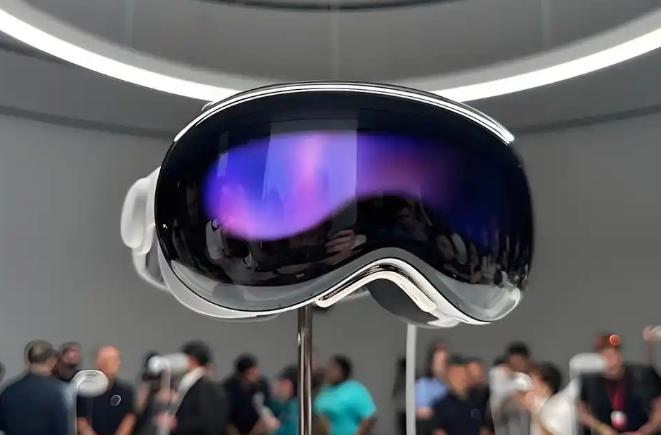
Apple plans to launch an AI smart glasses by the end of 2026. This pair of glasses will not only integrate a camera and microphone, but also embed advanced artificial intelligence technology. With diverse functions, it aims to provide users with a richer experience. It is reported that Apple's AI glasses are expected to include cameras, microphones and artificial intelligence, similar to Meta Ray-Bans and Google's Android XR glasses. The said device has the capabilities of taking photos, recording videos, providing turning instructions, playing music, and giving feedback on what the user sees. Meanwhile, users can also raise questions through this pair of glasses and obtain corresponding answers, greatly enhancing the convenience of daily use. Siri will be a key component of the Apple AI glasses experience, and the team is currently actively improving this personal assistant. In addition, this AI glasses do not include AR functions for the time being, but true AR glasses have always been Apple's long-term vision.
Apple CEO Tim Cook has expectations for developing "true AR glasses". The currently widely rumored Ray-Ban Meta product is more likely to be positioned as a "transitional solution" towards the ultimate AR experience or a market trial. At the same time, the impact it brings is also very significant. One is the impact on the technology market. When Apple's AI smart glasses are launched at the end of 2026, it will further intensify the competition in the smart glasses market. As companies like Meta and Google have already occupied a certain market share in this field, Apple's entry may lead to an intensification of product homogenization. Apple needs to stand out in the market by relying on its strong brand influence and technological strength. Manufacturers tend to be similar in terms of functions, designs, etc., making it difficult to form a differentiated competitive advantage. If Apple's products lack competitiveness due to technical shortcomings (such as the difficulty in balancing heat dissipation and performance, and the backwardness of AI technology, etc.), it may not be able to break the first-mover advantage of Meta and other manufacturers in the smart glasses market. This will intensify the monopolistic position of leading enterprises, hinder the innovation space of new entrants or small and medium-sized enterprises, and make the market pattern tend to solidify. In addition, Apple products are usually priced high, and AI smart glasses may continue this strategy. The high price may limit the speed of its market popularization, especially among price-sensitive consumer groups, thereby delaying the large-scale application of smart glasses technology.
The second is the impact on technology. Apple's shortcomings in the AI field (such as relying on third-party AI platforms and slow progress in self-developed large models) may cause its smart glasses to lag behind its competitors in core functions such as voice interaction and environmental perception. This technological gap will slow down the iteration speed of the smart glasses industry from the superposition of basic hardware to the direction of smart assistance and smart assistants. If Apple is affected by technical bottlenecks, such as the issue of chip heat dissipation. The inability to achieve a balance between lightweight and high performance may lead to the stagnation of smart glasses in terms of form design, battery life and other aspects. This will affect the enthusiasm of the entire industry for exploring hardware technologies such as new materials and low-power architectures. If Apple takes the leading position in the field of AI smart glasses, it may lead other manufacturers to overly rely on its technical standards and reduce their investment in independent innovation. This may also slow down the technological iteration speed of the entire industry, further delaying the breakthrough and application of emerging technologies.
Thirdly, the impact on users: AI smart glasses integrate sensors such as cameras and microphones, which may raise users' concerns about privacy protection. Apple needs to ensure that its products strictly comply with privacy regulations during the process of data collection, storage and use, to avoid a public trust crisis caused by data leakage or abuse. If Apple has technical shortcomings in data collection, privacy protection and other aspects, it may trigger a trust crisis among users for smart glasses. For instance, if functions such as facial recognition and environmental scanning lack strict security mechanisms, it may lead to the leakage of users' biological information, thereby hindering the promotion of the technology.
To sum up, if Apple can enhance and reshape its product competitiveness through technological reinforcement, it may drive a new round of breakthroughs in the AI industry in the field of smart wearables. However, the ultimate impact depends on whether it can make up for its shortcomings and reshape the market ecosystem through technological iteration.

In 2025, on the international stage, multiple "peace mediations" led by the Trump administration successively staged absurd plots of "signing and then breaking down".
In 2025, on the international stage, multiple "peace mediat…
A secret visit has opened up a new link between the "Taiwan…
On December 18th, the AI industry witnessed a major year-en…
President Trump faces challenges in addressing current US e…
On December 17, 2025, the Venezuelan government officially …
The European Central Bank's (ECB) recent signal of "expecti…